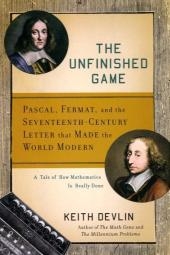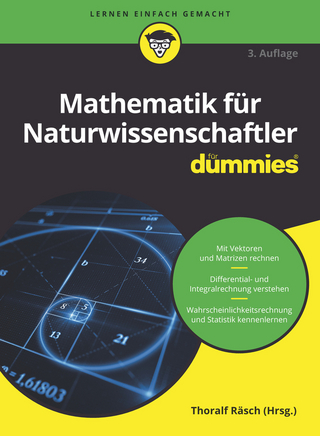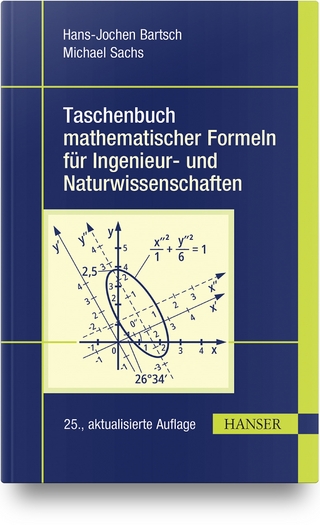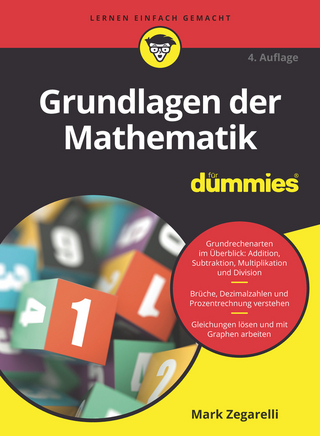
The Unfinished Game
Pascal, Fermat, and the Seventeenth-Century Letter That Made the World Modern
Seiten
2008
Basic Books (Verlag)
978-0-465-00910-7 (ISBN)
Basic Books (Verlag)
978-0-465-00910-7 (ISBN)
- Titel ist leider vergriffen;
keine Neuauflage - Artikel merken
From NPRs Math Guy, the engaging tale of Blaise Pascal, Pierre de Fermat, and the seventeenth-century letter that created the field of probability
Before the mid-seventeenth century, scholars generally agreed that it was impossible to predict something by calculating mathematical outcomes. One simply could not put a numerical value on the likelihood that a particular event would occur. Even the outcome of something as simple as a dice roll or the likelihood of showers instead of sunshine was thought to lie in the realm of pure, unknowable chance. The issue remained intractable until Blaise Pascal wrote to Pierre de Fermat in 1654, outlining a solution to the unfinished game problem: how do you divide the pot when players are forced to end a game of dice before someone has won? The idea turned out to be far more seminal than Pascal realized. From it, the two men developed the method known today as probability theory. In The Unfinished Game, mathematician and NPR commentator Keith Devlin tells the story of this correspondence and its remarkable impact on the modern world: from insurance rates, to housing and job markets, to the safety of cars and planes, calculating probabilities allowed people, for the first time, to think rationally about how future events might unfold.
Before the mid-seventeenth century, scholars generally agreed that it was impossible to predict something by calculating mathematical outcomes. One simply could not put a numerical value on the likelihood that a particular event would occur. Even the outcome of something as simple as a dice roll or the likelihood of showers instead of sunshine was thought to lie in the realm of pure, unknowable chance. The issue remained intractable until Blaise Pascal wrote to Pierre de Fermat in 1654, outlining a solution to the unfinished game problem: how do you divide the pot when players are forced to end a game of dice before someone has won? The idea turned out to be far more seminal than Pascal realized. From it, the two men developed the method known today as probability theory. In The Unfinished Game, mathematician and NPR commentator Keith Devlin tells the story of this correspondence and its remarkable impact on the modern world: from insurance rates, to housing and job markets, to the safety of cars and planes, calculating probabilities allowed people, for the first time, to think rationally about how future events might unfold.
Keith Devlin is a senior researcher at Stanford University's Center for the Study of Language and Information and its executive director, a consulting professor in the Department of Mathematics, and a co-founder of the Stanford Media X research network and of the university's H-STAR institute. He has written twenty-five books and over seventy-five published research articles. He is the "Math Guy" on National Public Radio. He lives in Palo Alto, California.
| Erscheint lt. Verlag | 5.3.2009 |
|---|---|
| Zusatzinfo | 25 b/w illustrations |
| Sprache | englisch |
| Maße | 140 x 210 mm |
| Themenwelt | Mathematik / Informatik ► Mathematik ► Allgemeines / Lexika |
| Mathematik / Informatik ► Mathematik ► Geschichte der Mathematik | |
| ISBN-10 | 0-465-00910-7 / 0465009107 |
| ISBN-13 | 978-0-465-00910-7 / 9780465009107 |
| Zustand | Neuware |
| Haben Sie eine Frage zum Produkt? |
Mehr entdecken
aus dem Bereich
aus dem Bereich
Buch | Hardcover (2023)
Hanser, Carl (Verlag)
CHF 41,95


